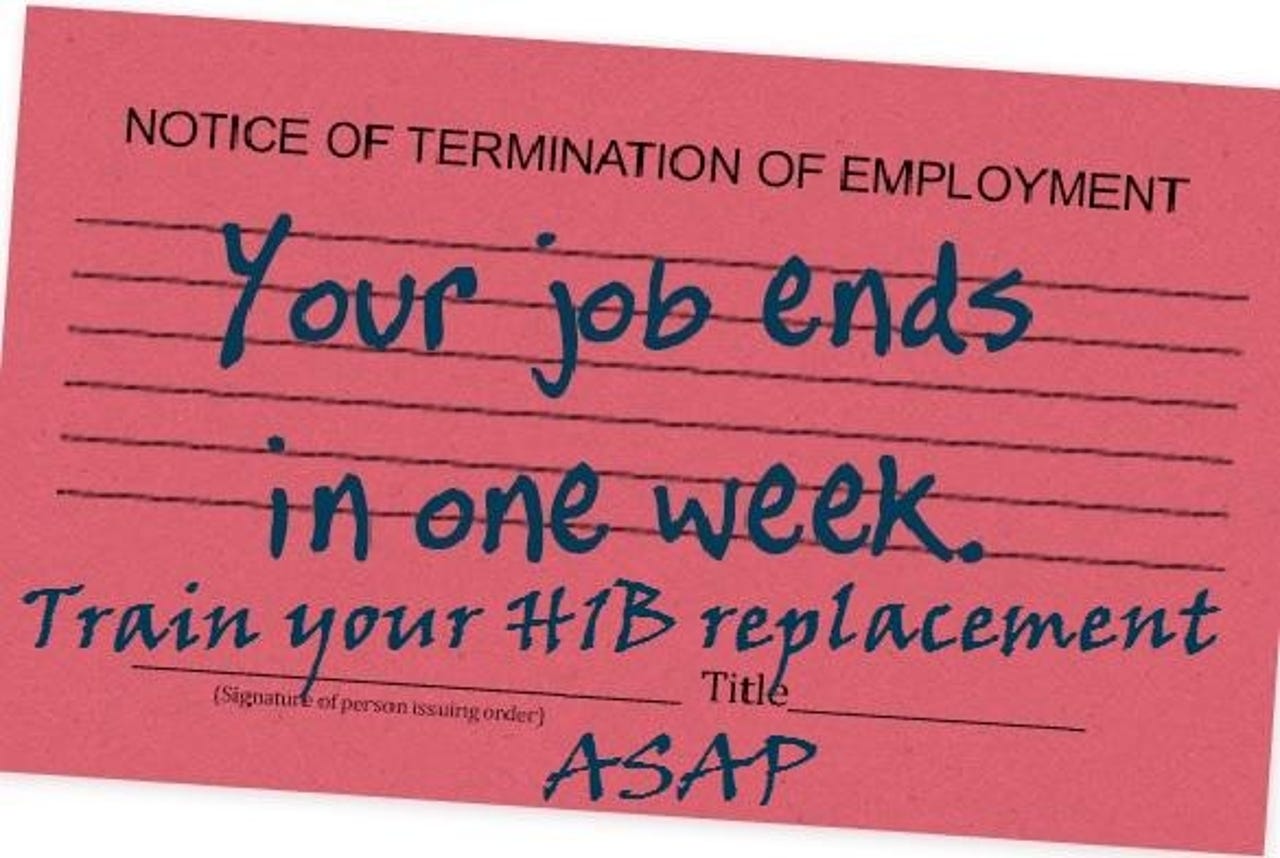H-1B visa fracas flares up again as US probes Infosys, TCS


This is apparently what two companies -- Walt Disney and power utility Southern California Edison -- did over the last year, forcing the Department of Labor to open up investigations against Tata Consultancy Services and Infosys a few days ago for "possible violations of rules for visas for foreign technology workers under contracts" on the heels of a New York Times story on the Disney situation.
The Times is not the first to report these cases. Computerworld wrote a detailed story in February about how SCE, Southern California's largest utility, laid off around 400 people and hired their replacements from Infosys, based in Bangalore, and Tata Consultancy Services (TCS), in Mumbai. The Times focused more on the fracas at Disney, where 250 people were told in October last year that they were going to lose their jobs to Indians, with the added ignominy of having to train them.
Latest news on Asia
Both Infosys and TCS deny that the Labor Department has launched an investigation into them -- indeed, they say that they have not been informed of any sort of probe being conducted at all. For its part, Infosys says that other than the usual percentage of visa and labor condition applications picked for extra scrutiny by the US, the company hasn't received any intimations of a wider probe.
Meanwhile, Indian IT industry body Nasscom claims that the Indian IT sector is being unfairly tarred without any attention to "facts and logic". Nasscom president R Chandrashekhar said its members are, as they always have been in situations like this, cooperating with US authorities on requests for information.
The stakes are enormous. The US remains by far the bulk of the market for the more than $140 billion Indian IT services industry, where exports are over $98 billion.
American IT workers are naturally incensed at any reports of IT jobs being stolen from under their noses by companies that pay their replacements a fraction of the wage.
"The program has created a highly lucrative business model of bringing in cheaper H-1B workers to substitute for Americans," said Ron Hira, a professor of public policy at Howard University, who studies visa programs and has testified before Congress about H-1B visas (PDF), in the Times story.
After all, the H-1B visa on which these tech workers arrive are meant for "specialized" positions that require advanced science or computer skills, where American equivalents cannot be found. But critics say that because of legal loopholes, companies often do not have to prove that American workers are being displaced.
On the other side of the fence, defenders of H-1Bs doing outsourced work in the US say that many American workers with advanced skills do not gravitate towards these relatively lower-end positions, and that the churn rate amongst Americans is often high enough to be a hiring deterrent. And those who do apply for the job are often older and need to be extensively re-skilled in order to be able to function in the fast-paced world of evolving programming languages.
In the final analysis, the saga of Indian IT companies being scrutinized for unfair labour practices in my opinion is as much about these firms gaming the system as it is about the history of labour within the American capitalist machine, the nexus between politics and big business in the US and its priorities, the real impact of H-1B on American IT jobs and wages, as well as the future of work.
Stay tuned for the next article on the H-1B saga that examines all of these issues within the context of the recent alleged probe against Infosys and TCS.